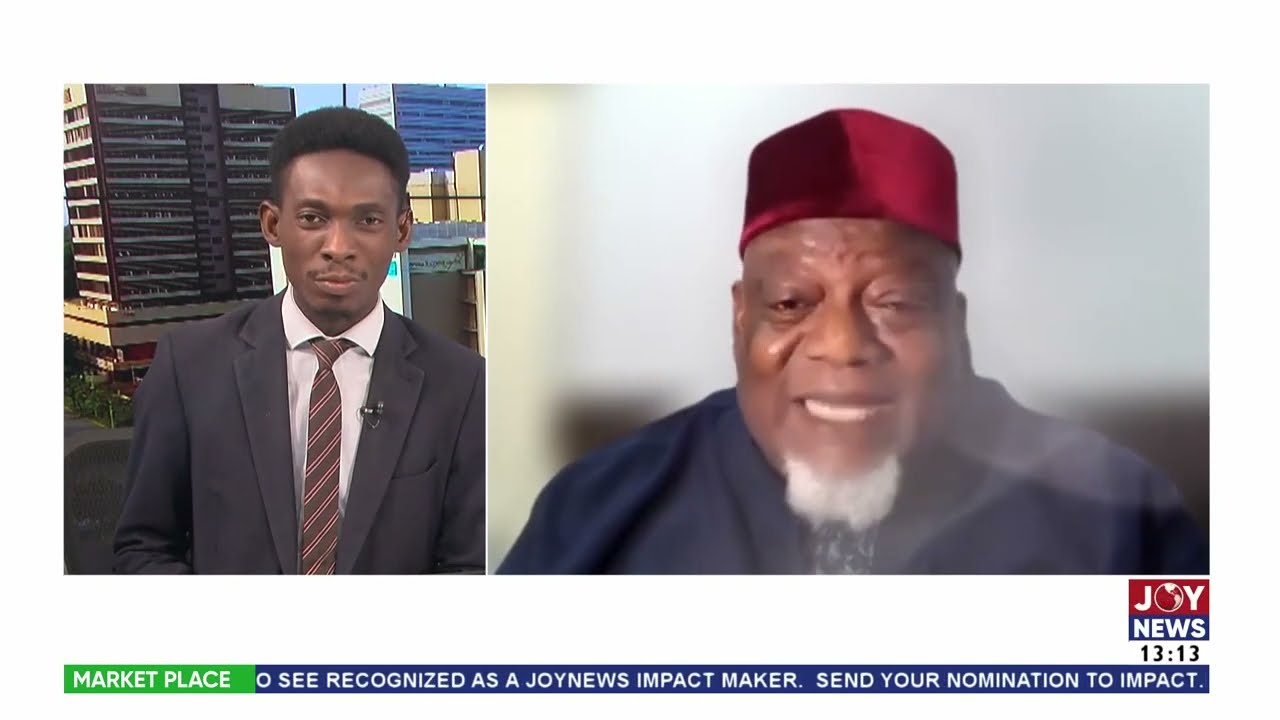Treasury Bills: Gov't Gets Ghc6.15bn At 24% Interest After Initially Rejecting Bids - Market Place
Unleash Your Creative Genius with MuseMind: Your AI-Powered Content Creation Copilot. Try now! 🚀
Introduction
In recent days, there has been a frenzy in the financial markets surrounding the sale of treasury bills. Interest rates have reached absurdly high levels, causing concern among investors and analysts. Joe Jackson, the director of operations at Delux Finance, joins us to shed light on these developments and offer insights into what the future may hold.
Ridiculously High Rates and Unsustainable Conditions
The rates on treasury bills have skyrocketed to unimaginable levels, making them seem virtually impossible to sustain. It is mind-boggling that the government claims it cannot afford to pay multi-year bonds at a 19% interest rate but is willing to pay 91-day and 182-day bills at a staggering 36%. The lack of coherence in this approach is causing concern among some of us.
Rejected Bids and a Glimmer of Hope
Last week, the government rejected bids for treasury bills due to these exorbitant interest rates. While the rejection may have been done in a cavalier manner, it is a step in the right direction. The fact that the rates have already come down from 36% to 24.5% is promising. Jackson believes that the rates will continue to decrease, and the evidence of oversubscription at the 24.5% level suggests that there is room for further decline.
Addressing the Issue of High Interest Rates
Lowering interest rates will not solve all the problems associated with the high rates, but it will make a significant dent in the issue. The aim is to create an environment where the government's actions do not completely crowd out lending to the private sector. The ability to compete at a 36% interest rate is unrealistic for any private enterprise. By bringing down deposit and lending rates, the government can stimulate economic growth and foster a healthier financial market.
Government Intervention: Urging for Lower Bids
The government has the power to influence the market by indicating a preference for lower bids. It does not have to wait for bids to come in and reject them afterward. By clearly communicating its desire for lower rates, the government can drive down the rates and create a more favorable lending environment. If the market does not respond to this request, the government has the option to abstain from participating, as it already has an oversubscription. This strategy would further push down interest rates and benefit the economy.
Bond Market Decline: A Mixed Blessing
In February, the bond market experienced a decline of 52.5%. While this might seem alarming, Jackson believes that it is actually a positive development. Given the challenging circumstances surrounding the debt exchange program, a less severe decline is a relief. The market has already weathered a default in government bonds and the subsequent liquidity and profitability issues. A 50% decline shows resilience and suggests that the worst may be behind us.
The Role of Insurance Companies and Default Concerns
Despite the government's default, some insurance companies still hold the swap documents and insurance policies related to government instruments. The concern arises from the uncertainty regarding whether these insurance companies will have to honor the policies in the event of a default. However, Jackson believes that this issue does not significantly impact the ongoing negotiations. The government's default has been a known factor for months, and insurance companies would have taken steps to protect themselves in anticipation of this possibility.
The President's Address and the Trust Deficit
President's recent address regarding the state of the nation left some questions unanswered. While it was encouraging to hear him acknowledge the importance of the economy and promise to address the crisis, the lack of details and a clear plan leaves room for doubt. Jackson highlights the importance of trust, as there is currently a trust deficit between the public and the government. The President's words of "trust me, I will get you out of this" need to be backed up by concrete actions, such as securing an IMF deal within the given deadline.
The Need for a Trustworthy Solution
The President's promise to get the country out of the economic crisis is only meaningful if the trust deficit is addressed. Ghanaians need assurance that the government is taking tangible steps towards a solution. If, by the end of March, the President announces a successful IMF deal, it will restore confidence in the government's ability to navigate these challenging times. Until then, patience and cautious optimism are key.
Conclusion
The drama surrounding treasury bills and high interest rates has captured the attention of investors and economists alike. While the rejection of high bids offers hope for lower rates, there is still much to be done to address the trust deficit and implement effective solutions. Ghanaians eagerly await the President's next move and a path forward towards economic stability. In the meantime, cautious optimism prevails as the countdown to the end of March continues.

Related Recaps
- ONE PIECE 1081: HAKI DEL RE CONQUISTATORE, IL PROSSIMO È SANJI?
- 2023 Stanley Cup Playoffs: Florida Panthers
- FLAMENGO dará mais um ano a LANDIM? MURICY fala da crise no SÃO PAULO e CORINTHIANS cede à torcida
- Un Docteur Opère le Nez d'un Homme qui ne Cesse de Grossir. Ce qui se Passe Ensuite est Choquant
- S3: Rural rejuvenation: Changing the rules of social impact and wellbeing.